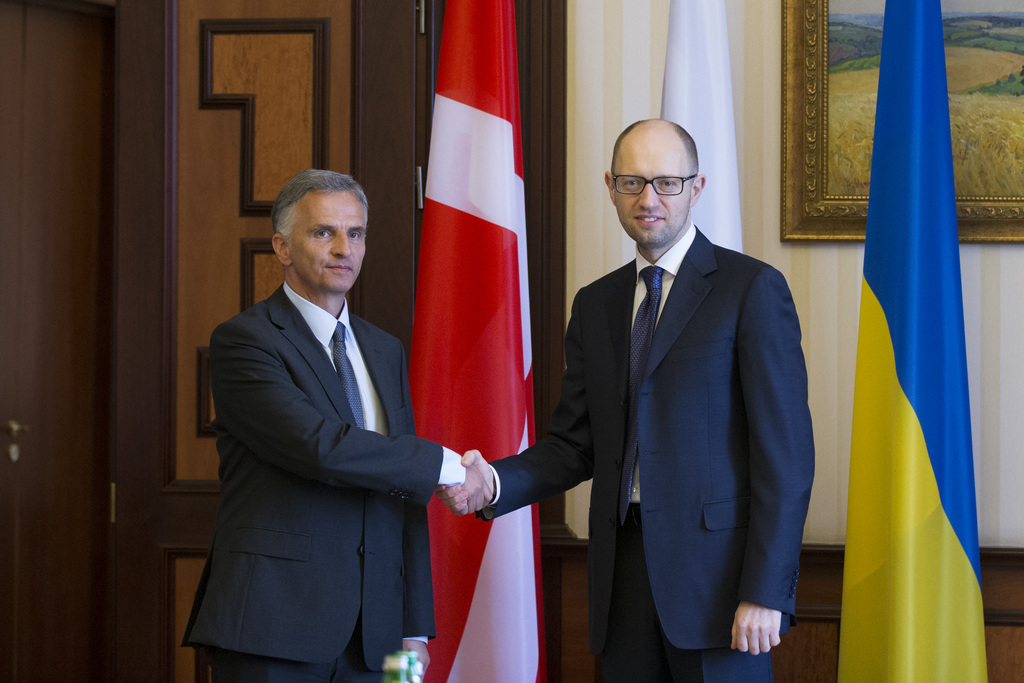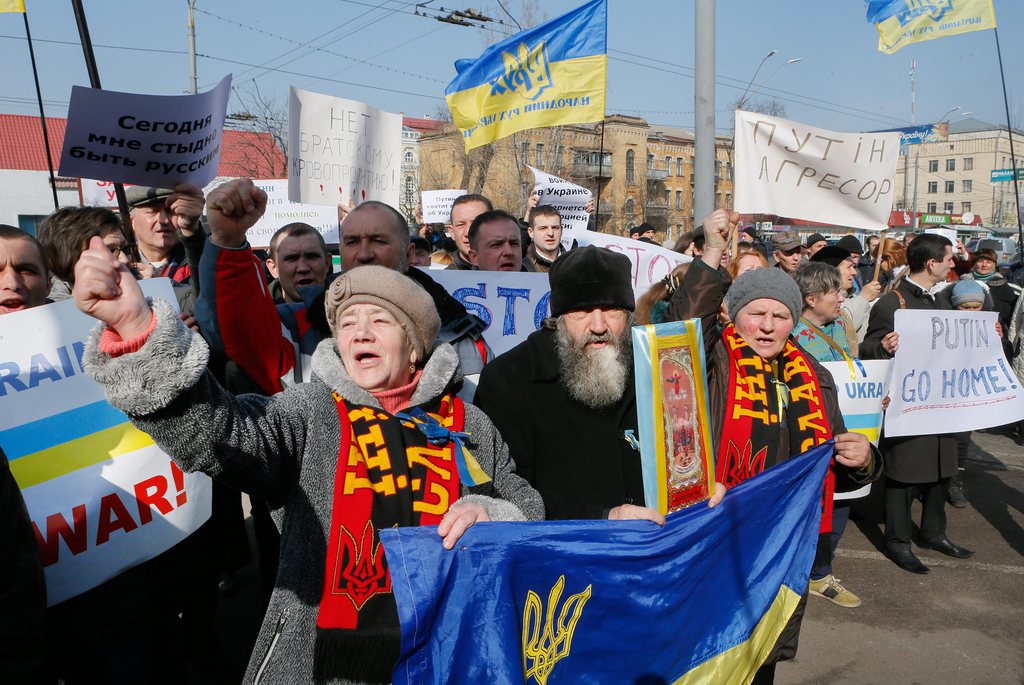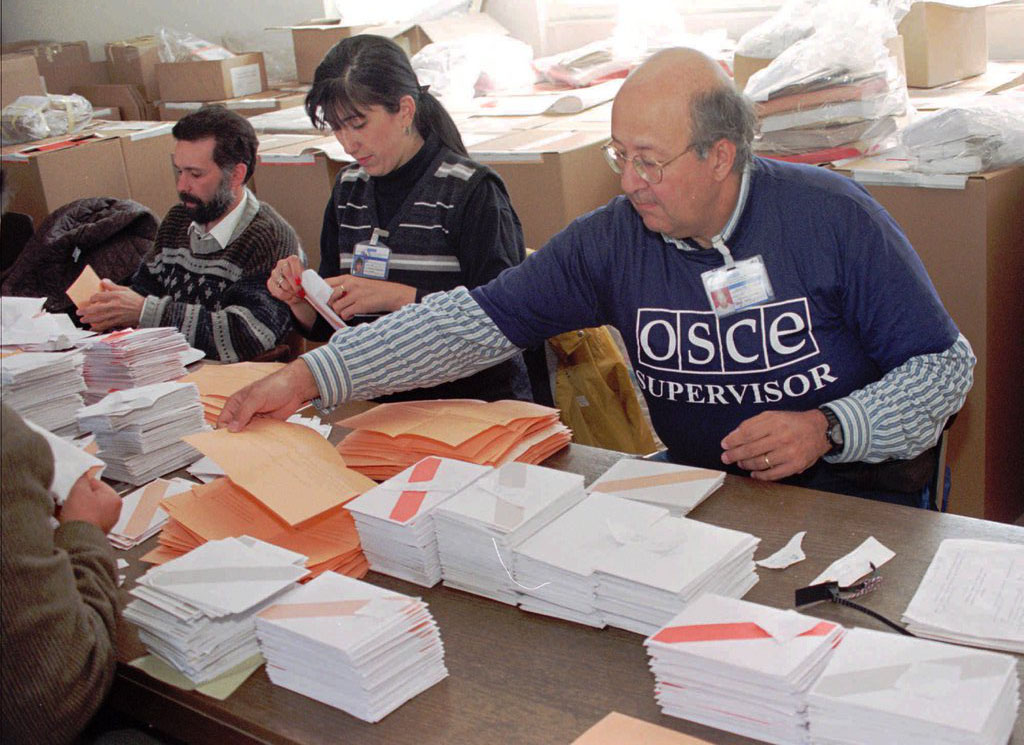Burkhalter seeks to defuse Ukrainian crisis

The Swiss head of the Organization for Security and Co-operation in Europe (OSCE), Didier Burkhalter, plans to increase the presence of international observers in Ukraine. He has also called for moves to decentralise power in a bid to defuse tensions.
Burkhalter, who is Swiss president and foreign minister, said the number of OSCE observers could be boosted to up to 300 people.
There are currently 121 OSCE representatives, including 85 observers, deployed in about ten cities in Ukraine.
The situation in eastern cities of Ukraine remains tense and volatile, but the observer missions in the region are safe, according to a senior Swiss official.
Speaking in Kiev after meeting Ukrainian Foreign Minister Andriy Deshchytsia on Monday, Burkhalter offered Swiss mediation following the occupation of government buildings by pro-Russian separatists in eastern Ukraine.
He also called for efforts to raise the awareness of the population in Ukraine for a decentralisation of power.
During his one-day fact-finding mission to Ukraine the Swiss OSCE chairman visited the organisation’s training centre in the country’s capital and OSCE observers in the Black Sea port of Odessa.
Burkhalter said he wished to “underscore the constructive role played by the OSCE in the Ukrainian crisis and the organisation’s intention to step up its efforts to contribute to de-escalating the tensions in the country”.
Deshchytsia said the Ukrainian authorities would do all they could to avoid bloodshed as they attempt to re-establish order in the troubled eastern part of the country.
Pro-Russian activists on Monday continued to attack official buildings in eastern Ukraine, ignoring a deadline to leave or face eviction by Ukrainian forces.

More
Envoy reports stability in Ukraine
Ultimatum
Kiev has accused Moscow of playing an active role in current events. “We have proof of the Russian implication,” Deshchytsia said at the beginning of his discussions with Burkhalter.
The Ukrainian foreign minister added that he had received reports from OSCE observers on the ground and that he hoped that the mission would continue.
Ukraine’s acting president, Olexander Turchynov, has threatened military action against the separatists.
He also held out the possibility of a referendum on the future shape of the Ukrainian state, partly addressing demands made in the largely Russian-speaking east for more control over local affairs.

More
Guldimann says eastern Ukraine not like Crimea
Geneva talks
The European Union has been trying to convene a meeting with Russia, the United States and Ukraine in the Swiss city of Geneva next Thursday.
But Washington has expressed doubts the talks can take place as Moscow apparently began setting preconditions.
The Russian demands reportedly include an insistence that Ukraine remain outside the North Atlantic Treaty Organization (NATO) and the EU, that its regions are given more autonomy and Russian speakers guaranteed more rights to use their language rather than Ukrainian.
The idea of a federal system of governance for Ukraine has been floated for months by Moscow.
Kiev has promised to devolve powers to the regions, but rejects a federalist system, fearing more Crimea-style referendums on secession.

In compliance with the JTI standards
More: SWI swissinfo.ch certified by the Journalism Trust Initiative












You can find an overview of ongoing debates with our journalists here . Please join us!
If you want to start a conversation about a topic raised in this article or want to report factual errors, email us at english@swissinfo.ch.